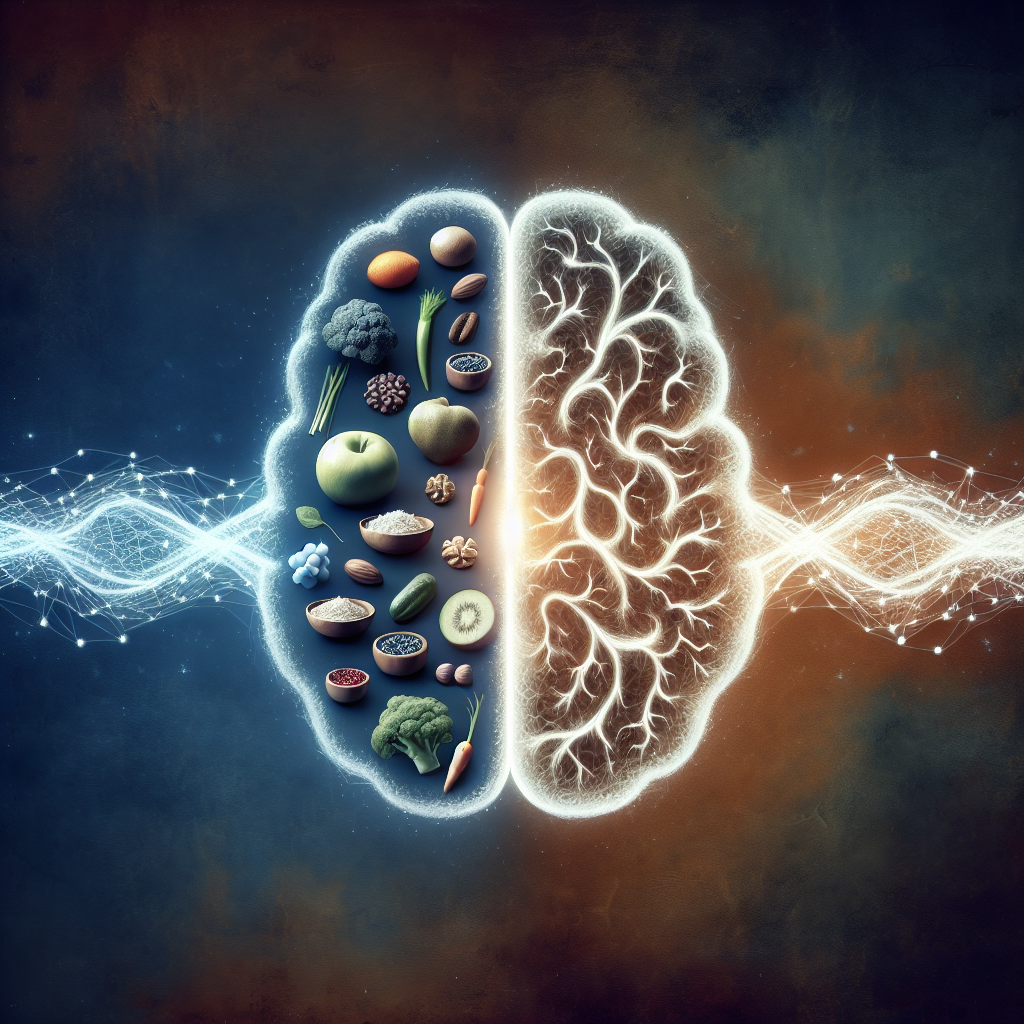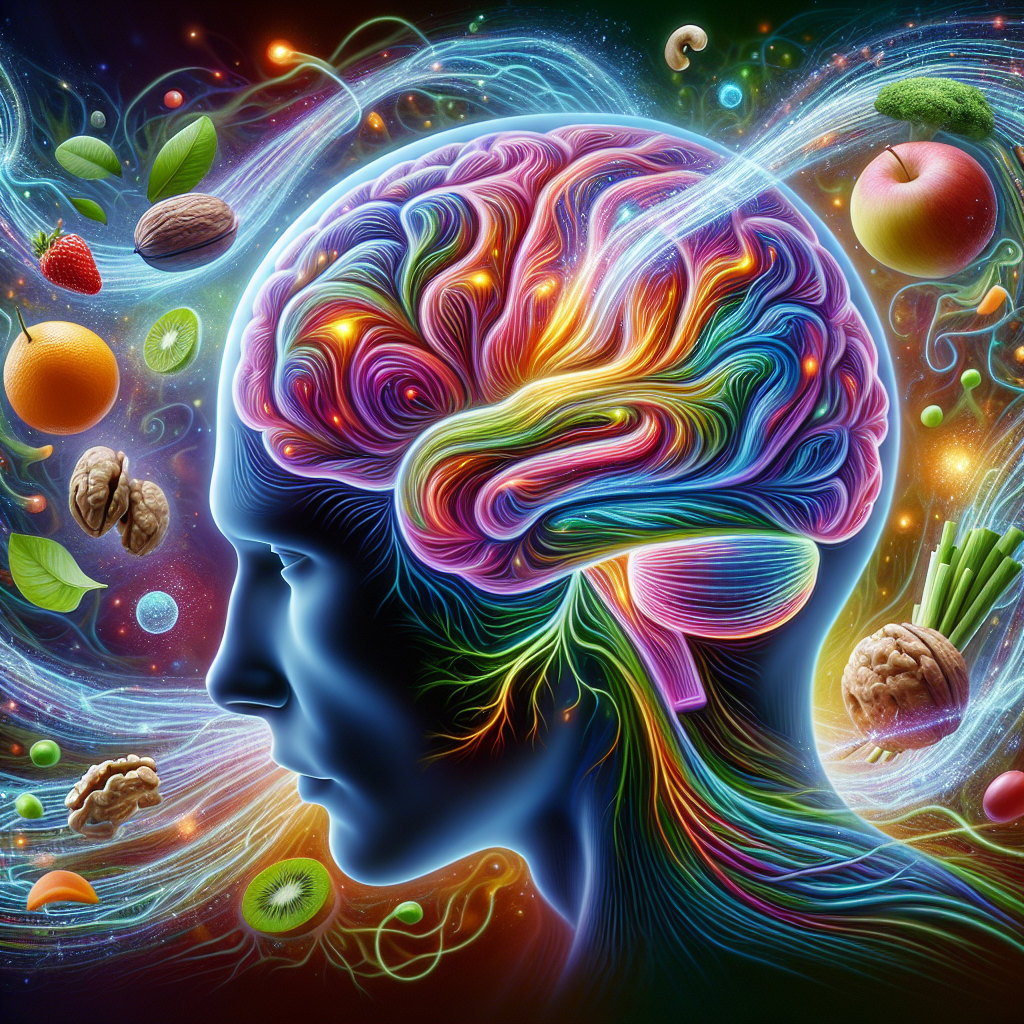Tapping Into Flow State: Nutrition and Brain Chemistry

Discover the power of tapping into your flow state through nutrition and brain chemistry. Learn how to optimize your mental performance and overall well-being. Visit My Vibrant Vitality now to start your journey towards a healthier, more focused you.
Unlocking Your Potential: The Role of Nutrition in Achieving Flow State
The human brain is a complex organ, responsible for controlling and coordinating actions and reactions, allowing us to think and feel, and enabling us to have memories and feelings. It is the command center for the human nervous system, and as such, its health and optimal functioning are crucial for our overall well-being. One of the ways to ensure the brain is functioning at its best is through proper nutrition. This is particularly important when it comes to achieving a state of flow, a mental state in which a person is fully immersed in a feeling of energized focus, full involvement, and enjoyment in the process of an activity.
The concept of flow state, first proposed by psychologist Mihaly Csikszentmihalyi, is often associated with peak performance and creativity. It is a state of heightened focus and immersion in activities such as art, play, and work. Achieving this state can lead to increased productivity, creativity, and satisfaction. However, reaching this state requires a healthy and well-functioning brain, and this is where nutrition comes into play.
The brain, like any other organ in the body, requires certain nutrients to function optimally. These nutrients, which include vitamins, minerals, and antioxidants, help protect the brain from oxidative stress, which is the waste produced when the body uses oxygen, which can damage cells. Additionally, certain nutrients play a role in the production of brain chemicals, or neurotransmitters, which are crucial for the communication between brain cells and therefore influence our mood, sleep, focus, and overall brain function.
For instance, the B vitamins, particularly B6, B9, and B12, are known to be essential for brain health. They help the body produce and control the chemicals that influence mood and other brain functions. A deficiency in these vitamins can lead to decreased serotonin production, a neurotransmitter that contributes to feelings of well-being and happiness, and is therefore crucial for achieving a state of flow.
Omega-3 fatty acids, found in fatty fish, walnuts, and flaxseeds, are another group of nutrients that are essential for brain health. They are used to build brain and nerve cells, and are crucial for learning and memory. Omega-3 fatty acids are also needed for the production of dopamine and serotonin, two neurotransmitters that play a key role in mood regulation and achieving a state of flow.
Furthermore, antioxidants found in fruits and vegetables, such as vitamin C, vitamin E, and beta-carotene, help protect the brain from oxidative stress. They neutralize harmful free radicals and reduce inflammation, which can damage brain cells and hinder optimal brain function.
In conclusion, proper nutrition plays a crucial role in achieving a state of flow. By providing the brain with the necessary nutrients, we can ensure its optimal functioning, which in turn can help us reach this state of heightened focus and creativity. Therefore, a balanced diet rich in vitamins, minerals, antioxidants, and omega-3 fatty acids should be an integral part of anyone’s strategy to tap into their flow state and unlock their full potential.
Brain Chemistry and Flow State: How Proper Nutrition Fuels Optimal Performance

The human brain is a complex organ, responsible for controlling all bodily functions and enabling us to think, learn, and create. It is a powerhouse of energy, consuming about 20% of the body’s total energy intake. This energy is primarily derived from the food we consume, making nutrition a critical factor in brain health and function. One area where the impact of nutrition is particularly evident is in the attainment of the ‘flow state’, a mental state of complete immersion and focus in an activity.
The flow state, also known as being ‘in the zone’, is a psychological concept popularized by psychologist Mihaly Csikszentmihalyi. It is characterized by a heightened sense of concentration, increased creativity, and a sense of time distortion. Achieving this state can significantly enhance performance in various fields, from sports to arts to professional tasks.
The brain’s ability to enter the flow state is closely linked to its chemistry. Neurotransmitters, the brain’s chemical messengers, play a crucial role in this process. Dopamine, norepinephrine, endorphins, anandamide, and serotonin are particularly important. These neurotransmitters are associated with feelings of pleasure, motivation, and reward, and their levels increase during the flow state, contributing to its enjoyable and productive nature.
Proper nutrition can significantly influence the production and function of these neurotransmitters. For instance, the amino acid tyrosine, found in foods like cheese, turkey, and soy, is a precursor to dopamine and norepinephrine. Consuming tyrosine-rich foods can potentially boost the levels of these neurotransmitters, promoting focus and motivation. Similarly, foods rich in tryptophan, such as eggs, cheese, and salmon, can enhance serotonin production, contributing to feelings of well-being and happiness.
Omega-3 fatty acids, found in fatty fish, walnuts, and flaxseeds, are also crucial for brain health. They form an integral part of cell membranes, including those in the brain, and have anti-inflammatory and antioxidant effects. Research suggests that omega-3 fatty acids can improve cognitive function and may even enhance mood by influencing neurotransmitter pathways.
Moreover, complex carbohydrates found in whole grains, fruits, and vegetables provide a steady supply of glucose, the brain’s primary energy source. This steady energy supply can help maintain focus and concentration, key components of the flow state.
However, it’s not just about what you eat, but also when you eat. Intermittent fasting, a dietary pattern that alternates between periods of eating and fasting, has been shown to increase levels of the neurotransmitter norepinephrine, which can enhance focus and attention.
In conclusion, nutrition plays a pivotal role in brain chemistry and the ability to achieve the flow state. A diet rich in amino acids, omega-3 fatty acids, and complex carbohydrates, coupled with mindful eating patterns, can potentially enhance your ability to tap into this optimal performance state. However, it’s important to remember that nutrition is just one piece of the puzzle. Regular exercise, adequate sleep, and stress management are also crucial for maintaining optimal brain health and function.
As we continue to unravel the complexities of the brain and its function, the adage ‘you are what you eat’ seems more relevant than ever. By understanding the connection between nutrition and brain chemistry, we can make informed dietary choices that not only nourish our bodies but also fuel our minds, enabling us to tap into the power of the flow state and perform at our best.
The Science of Flow: Exploring the Connection Between Nutrition, Brain Chemistry, and Peak Performance
The human brain is a complex organ, responsible for controlling all bodily functions and enabling us to interact with the world around us. It is also the seat of consciousness, thought, memory, and emotion. As such, the brain’s health and performance are of paramount importance. One aspect of brain performance that has garnered significant attention in recent years is the concept of ‘flow state’. This is a mental state in which a person is fully immersed in a task, experiencing a sense of energized focus, full involvement, and enjoyment. It is often associated with peak performance and creativity. Interestingly, research suggests that nutrition and brain chemistry play a crucial role in achieving this state.
Nutrition is the foundation of our health, including brain health. The brain, despite accounting for only 2% of our body weight, consumes about 20% of our daily energy intake. This energy is primarily derived from glucose, which is obtained from the carbohydrates we consume. However, the brain also requires a range of other nutrients, including essential fatty acids, amino acids, vitamins, and minerals. These nutrients are not just fuel for the brain; they also play a role in the synthesis and function of neurotransmitters, the chemical messengers that transmit signals across the brain.
Neurotransmitters are key players in the brain’s communication system. They influence our mood, sleep, concentration, and a host of other cognitive functions. For instance, serotonin, often referred to as the ‘feel-good’ neurotransmitter, is involved in mood regulation and has been linked to feelings of well-being and happiness. Dopamine, on the other hand, is associated with reward and motivation, and norepinephrine with attention and response actions.
The connection between nutrition, neurotransmitters, and flow state becomes apparent when we consider that certain nutrients are precursors to these neurotransmitters. For example, the amino acid tryptophan is a precursor to serotonin, while tyrosine is a precursor to both dopamine and norepinephrine. By consuming a diet rich in these nutrients, we can potentially influence our brain chemistry and enhance our ability to achieve a flow state.
Moreover, research has shown that certain dietary patterns, such as the Mediterranean diet, which is high in fruits, vegetables, whole grains, and healthy fats, are associated with better cognitive function and lower risk of cognitive decline. This suggests that a balanced, nutrient-dense diet can support optimal brain function and potentially facilitate the achievement of a flow state.
However, it’s important to note that nutrition is just one piece of the puzzle. Other factors, such as sleep, exercise, stress management, and mental training techniques, also play a role in achieving a flow state. Furthermore, individual differences in metabolism, genetics, and gut microbiota can influence how we respond to different nutrients, making personalized nutrition an exciting area of future research.
In conclusion, the science of flow is a fascinating field that intersects with nutrition and brain chemistry. By understanding the role of nutrients in brain function and neurotransmitter synthesis, we can potentially harness the power of nutrition to enhance our cognitive performance and tap into the flow state. However, more research is needed to fully understand these complex relationships and to develop evidence-based dietary strategies for optimizing brain health and performance.